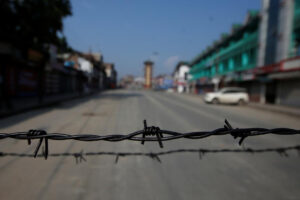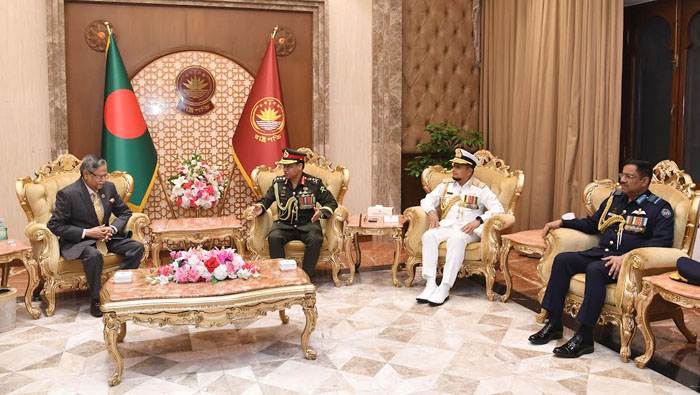 Moon Desk: The United Nations Third Committee (Social, Hu¬manitarian and Cultur¬al) during its 55th meeting on November 17, 2023, ap¬proved a draft reso¬lution on the uni¬versal realisation of the right of peoples to self-determina¬tion. By the text, the Assembly would call on those States responsi¬ble to cease military interven¬tions in and occupation of for¬eign countries and territories, as well as the brutal methods employed against the popula¬tions. Under the terms of the draft resolution, the General Assembly would reaffirm the universal realisation of the rights of all peoples, including those under colonial, foreign and alien domination, to self-determination as a fundamen¬tal condition for the effective guarantee and observance of human rights. Dr. Ghulam Nabi Fai, Chairman, ‘World Fo¬rum for Peace and Justice’ said that “This is one more prom¬ise given to the people of occu¬pied lands, including Kashmir that cannot be kept. If promis¬es are made to be broken, then Kashmir may be summoned to prove the treacherous propo¬sition. Broken promises haunt Kashmir’s history and explain its tragedy.
Moon Desk: The United Nations Third Committee (Social, Hu¬manitarian and Cultur¬al) during its 55th meeting on November 17, 2023, ap¬proved a draft reso¬lution on the uni¬versal realisation of the right of peoples to self-determina¬tion. By the text, the Assembly would call on those States responsi¬ble to cease military interven¬tions in and occupation of for¬eign countries and territories, as well as the brutal methods employed against the popula¬tions. Under the terms of the draft resolution, the General Assembly would reaffirm the universal realisation of the rights of all peoples, including those under colonial, foreign and alien domination, to self-determination as a fundamen¬tal condition for the effective guarantee and observance of human rights. Dr. Ghulam Nabi Fai, Chairman, ‘World Fo¬rum for Peace and Justice’ said that “This is one more prom¬ise given to the people of occu¬pied lands, including Kashmir that cannot be kept. If promis¬es are made to be broken, then Kashmir may be summoned to prove the treacherous propo¬sition. Broken promises haunt Kashmir’s history and explain its tragedy.
And, if we were to judge the United Nations based upon its history of involvement in ef¬forts to resolve international conflicts, Dr. Fai added, the sim¬plest answer is that it has been an enormous failure. Counted among the greatest failures of the UN are dozens, in particu¬lar, Srebrenica, a town in east¬ern Bosnia; Rwanda; Palestine and Kashmir. In context, Kash¬mir cannot be ignored, per¬haps for no other reason than the conflict there has gone on for 76 years and seems des¬tined to continue as long as the 900,000 Indian military and paramilitary forces continue to occupy the region. The po¬tential for genocide remains a very real threat as warned by Dr. Gregory Stanton, Chairman, Genocide Watch.
“With the lapse of Brit¬ish paramountcy on Aug. 15, 1947, broken promises over Kashmir came not like sin¬gle spies but in battalions, to borrow from Hamlet. Princely states enjoyed three options: accession to India, accession to Pakistan or independence. But the choice, according to Indi¬an Prime Minister Jawaharlal Nehru and tacitly endorsed by the Mountbatten British Vice¬roy was to be made by popular referendum in cases where the creed of the ruler varied from the religion of the majority. That promise was never kept,” Fai explained.
India then raced to the Unit¬ed Nations Security Council on Jan.1, 1948, and champi¬oned a pair of resolutions on Aug. 13, 1948, and Jan. 5, 1949, that prescribed a self-determi¬nation vote for Kashmiris on the heels of U.N. supervised demilitarisation. That prom¬ise was also broken. Promises were made by India in 1966, (Tashkent Declaration), 1972, (Shimla Agreement) to nego¬tiate seriously over Kashmiri’s sovereignty. But nothing was done. One more broken prom-ise can be laid at the feet of the UN Security Council which has never exerted any moral or other clout to even nudge In¬dia toward compliance with its resolutions. The train of bro¬ken promises over Kashmir might be forgiven if the con¬sequences were innocuous or inconsequential. But I submit the opposite is the case. India exerts an iron-fisted rule over Kashmir that would stir the heart of Genghis Khan.
Finally, Dr. Fai suggested that it is high time that the Unit¬ed Nations try to make a con¬structive departure. The best point for doing so is to restore the focus where it originally be¬longed and where it still rests logically viz: the rights and in¬terests of the people of all zones of the State of Jammu & Kash¬mir itself. No sleight of hand is required, no subtle concepts are to be deployed, and no in¬genious deal needs to be struck between India and Pakistan. What is needed is going back — yes, going back — to the point of agreement which historically existed beyond doubt between India and Pakistan and joint¬ly resolving to retrieve it with such modifications as proposed by the Kashmir leadership – the tripartite negotiations between India, Pakistan and the genuine leadership of the people of the State of Jammu & Kashmir.






